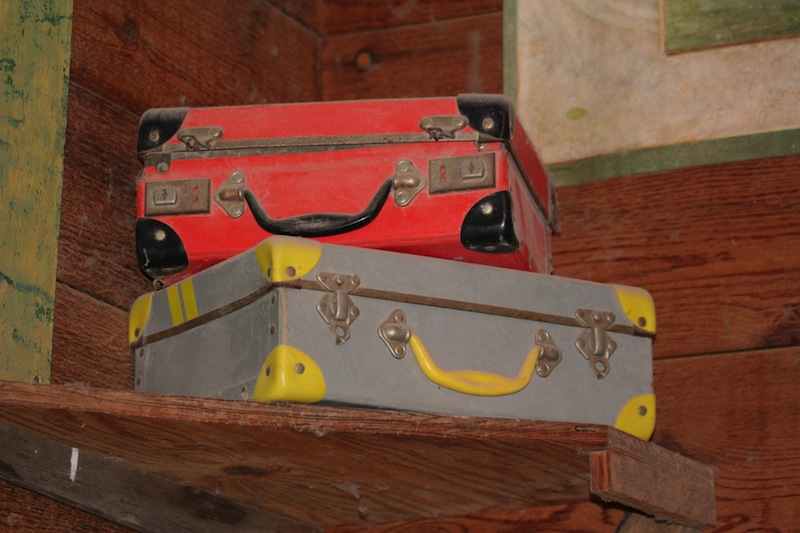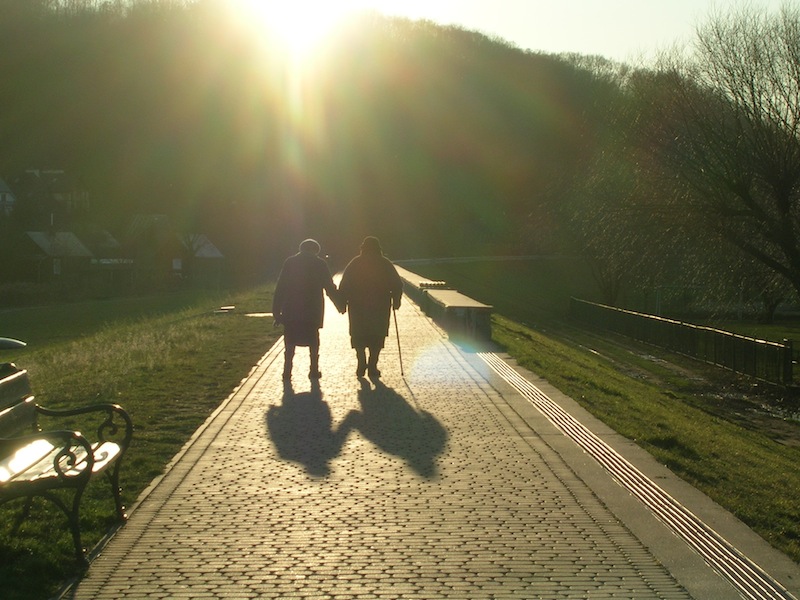
Quotes and references are taken from the topic “When the distance becomes a burden”, Psychology section in the Italian forums of Expatclic.
I draw on this subject to talk about how severe moments of life, such as illness and death of a loved one, are experienced in expatriation. Mourning in expatriation, for instance. What happens if a family member or friend falls ill or is to undergo surgery miles away from us? Being away is always perceived, in these cases, as a difficulty. The fact of not being physically present and not being able to assess the true condition of the patient triggers anxiety, which is made worse by the feeling that others are not telling us how things really are.
“My grandmother was operated on 15 days ago, luckily I was able to go to Italy in early September, before I knew what was happening, and at least I could see her then. But waiting for the phone to ring, staying all day in a state of worry, before knowing that the operation went well…and in all cases anxiety is constant” (Selena).
_______________________________________________
“Two years ago, for example, my brother fell from his horse and hurt his head on a rock, and this happened in early December. My mother tells me 15 days after the accident, when my brother returns from the hospital … Well, I would have liked to know at the time; not that I wanted to be by myself in a state of worry, but to be ready to go if the operation had not gone well ” (Cricchellina).
_______________________________________________
“…When we are faraway and not being told, there is always a sixth sense that makes us draw our antennas ….” (Giulietta).
The failure to inform us about the progress of things aims to protect us and prevents us from getting unnecessarily alarmed, but it also has something to do with defense mechanisms that lead us to want to minimize and deny the worst.
But as Claudia said, we need to explain that for us knowing the truth is of paramount importance:
“…In the end I think it’s important, when we expatriate, to say very clearly how and what we want to know: people who stay in Italy must understand clearly and deeply that living away is not an easy walk when going through situations of this kind, and that if we ask, we have the right to be informed as much as if we were present there …” (Claudia )
Those who live these experiences indirectly, by phone or on the network, paradoxically experience higher levels of stress because they cannot enjoy, even minimally, the relief due from sharing pain and anxiety with the group of family and friends. We must also bear the guilt resulting from the fact of not being there to help and give comfort.
So far as when a death is concerned, things are even more complex. What I would like to consider here is how living away affects the course of bereavement. In order to do that I first look at the different stages of this process.
The first stage is denial, accompanied by shock, turning immediately into pain, often accompanied by anger and guilt for not having been able to do more for the deceased, and even of having experienced negative feelings towards her/him …
This phase is followed by a repair process, characterized by the idealization of the missing person: we are happy to remember the positive aspects, the episodes of happiness …
Overcoming pain accompanies the final stage of internalization: the person becomes part of our inner world, we have accepted the idea of not ever seeing her again.
The period of mourning can vary greatly, and the process blends an infinite number of variables, moving back and forth across the different phases.
Let’s see what happens when you live far away:
“… I had not made my good-bye to him (inside myself, I mean) although I knew he was ill and his condition had deteriorated suddenly and faster than we thought ….. I remember at one point I really had an almost physical need to go to the cemetery to see where he rested because I felt something crazy, like not being able to make this thing really really mine…”(Claudia).
Not to attend the funeral blocks progress through the denial phase. We do not accept the idea of death. Without performing the ritual, which gives a real sense and collective recognition of death, we face death hard and raw , with a strong sense of dismay.
“I found it very difficult to begin mourning in expatriation… It took some time between the accident and the day I left to attend the funeral. A strange time where the anxiety of believing that anything was possible summed to the hope that, once landed, they would tell me “hey, it’s been a joke!” (Alessandra).
_______________________________________________
“… When you don’t go through these “rituals “… well, it’s like there were doors inside me that needed to be closed, things still hanging” (Alessandra).
Something is pending, unfinished; there is an inability to take leave.
“… But the, in a way, “nice” thing about these deaths is that, not living on the spot, you are led to think about the missing person as if she were still alive, as if she continued to live there, in my country, like every day. Since I do not notice the lack of that person, I do not feel completely detached. And perhaps, from a certain perspective, this is very well ” (Selena).
Overcoming the final phase of mourning can seem diluted in time if you live in expatriation. Indeed, in practical terms, , there are no large differences in daily life between before and after death for those who live far away, so it is easier to deny and reject the idea of an absence. On the other hand this can increase the pain, keeping it alive and preventing us from turning it into something acceptable to our system.
Living through a death in expatriation could even make us feel the desire to get closer to our family, our loved ones, perhaps for a period. It’s not a bad impulse, nor does it jeopardize the process, and it would be wise to listen to it. The work of mourning, especially of a very close member of the family, may actually cause an upheaval of our inner world that can influence our whole system of relationships. It could lead to a revision of our beliefs and our benchmarks.
Returning “home” can mean creating a protected space where wounds are healed, and able to start again from a “solid foundation ” to continue our travels. With this in mind, I end this article by suggesting a reading (useful and accessible to the non professional) on grief: The Walled Garden, by Catherine Dunne.




